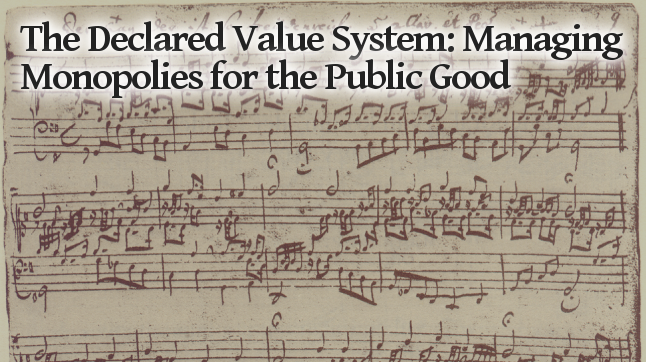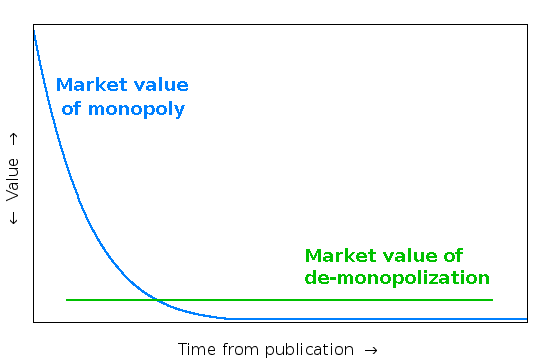Cómo liberar tu trabajo
Fuente: How To Free Your Work por Nina Paley
Traducido por Valentina: valebone#yahoo.com.ar [Reemplacen # x @-Muchas Gracias a ella!!]
[Al final dejamos una aclaración para la Argentina]
-
Teoría:
¿Por qué debería liberar mi trabajo?
Para hacer lo más fácil posible que la gente comparta tu trabajo –lo
más fácil posible para llegar a sus ojos, oídos y mentes –para
alcanzar una audiencia.
Y para hacer lo más fácil posible que la audiencia apoye, incluso
económicamente.
Las formas de apoyo de la audiencia incluyen:
-
Dinero
– el público quiere apoyar a los artistas que le gustan. Un botón de “Donar” les da un mecanismo fácil apra hacerlo. El público compra merchandising de artistas que le gustan por la misma razón.
Dales una “Razón para comprar” y lo harán. -
Trabajo
–algunos fans pueden hacer websites, vender merchandising en conciertos, ayudar en promociones, etc. Si necesitás ayuda, pedísela primoero a tu público. Nadie está más motivado para ayudarte que tus verdaderos fans. -
Promociones
– las recomendaciones boca a boca son las más efectivas para la promoción, y el público lo hace sin ninguna imposición si el trabajo les gusta. -
Distribución
– la llamada “piratería” es un servicio extremadamente valioso. La distribución sin ayuda del público es cara: imagínate si tuvieras que pagar cada copia de tu trabajo (como pagar por una edición de libros o cds), y después almacenarlos y distribuirlos hacia cada potencial espectador. ¿Querés que 1000 personas escuchen tu canción? Imaginate si tuvieras que pagar al menos $1000 para tener al menos la chance –sin incluir costos de almacenamiento y envío. Entonces, por supuesto, podés cobrarles por el privilegio de escuchar tu canción, vendiéndoles cds pero la
barrera del costo hace que sea todavía más difícil que quieran escucharte. Cuando el público distribuye tu trabajo por vos, ellos asumen los costos de hacer y compartir las copias, no vos. La distribución del público no te cuesta nada. -
Archivar
– el costo de archivar de forma privada tu trabajo es muy alto; los fans lo hacen gratis. Mientras más libre es el trabajo, más grande va a ser el archivo, especialmente a medida que cambian las tecnologías y los formatos. Los cds y dvds pueden volverse obsoletos, pero los fans migran los trabajos de un formato a otro, asegurándose que siempre estén accesibles y actualizados. Ejemplo:
las películas de copia restringidase desintegran en latas.
Digitalizarlas es caro; digitalizarlas sin permiso es un riesgo demasiado grande como para invertir en eso. Sin un público que ayude, estos costos tienen que ser financiados exclusivamente por el dueño del copyright. Los formatos de los archivos digitales son notablemente inestables; muchos discos duros de hace diez años son incompatibles con la tecnología de hoy. Los códigos de video cambian rápido, y nadie sabe cuáles permanecerán en uso y cuales serán viejos. Un dueño de derechos puede continuamente buscar qué nuevos formatos están evolucionando, y asegurarse de migrar sus archivos. De todas formas, es factible que se pierda algunos cambios de formato; es muy difícil para una sola entidad abarcar todas las innovaciones tecnológicas. Los formatos análogos son más seguros, porque no cambian tan rápido, pero archivar films de 35mm es extraordinariamente caro. El negativo tiene que transferirse a films
de archivo, y después guardarse en instalaciones seguras. Si algo pasa en esa instalación, o no se paga el alquiler, se pierde el archivo. En cambio, la cultura libre abre la posibilidad de tener el sistema de archivo más sólido, descentralizado y actualizado que pueda existir; el público y sus aparatos.Restricciones de copia: colocar una barrera entre usted, el artista, y la mayoría de las formas de apoyo. Mediante la eliminación de las barreras de derechos de autor, se hace posible la recepción de dinero y otros tipos de apoyos de su público, ya sea directamente oa través de distribuidores, lo que aumenta sus posibilidades de éxito.
-
Práctica:
Cómo liberar tu trabajo
-
Armá tu propio website
Cómo armar un website
Hay miles de formas de armar un website, desde contratar a profesionales de diseño y sistemas, hasta un blog gratis. Asumiendo que estás quebrado y no tenés habilidades tecnológicas, esta es la forma más fácil:
-
Registrate en WordPress blog.
Es gratis y fácil. -
Seguí las instrucciones
Eso es todo. Tu propio website, gratis, con miles de templates para elegir y un montón de ayuda de wordpress. ¡Eso es todo lo que necesitás! Claro que podés tener algo más avanzado, pero ya requiere más habilidades, tiempo, y/o plata. Un blog gratis de wordpress es más que suficiente para empezar.
-
Conseguí cuentas de PayPaly Flattr .
Agregá botones “Donar” y “Flattr” en el website. -
Elegí una licencia libre
¿Qué es una licencia libre?
Una licencia libre es lenguaje legal por encima del copyright. En nuestro actual régimen de copyright, todo tiene copyright, quieras o no. Lo que escribo acá tiene copyright, por más de que no quiera.
Actualmente no hay ningún modo de “salirse” del copyright. Todo lo que podés hacer es adjuntar una “Licencia libre” al trabajo, que les da a los usuarios algunas libertades que el copyright automáticamente quita.
Una licencia libre garantiza Cuatro Libertades de Cultura Libre:
-
La libertad de ver, escuchar, leer, o participar del trabajo;
-
La libertad de estudiar, analizar y fragmentar copias de tu trabajo, adaptándolo a tus necesidades;
-
La libertad de redistribuir copias para ayudar a los que te rodean;
-
La libertad de mejorar el trabajo, y mostrar tus mejoras al público, para que todos se beneficien.
Creative Commons es la marca más famosa de licencias libres, sin embargo la mayoría de las licencias libres de Creative Commons ¡no son gratis! Que la licencia tenga la marca Creative Commons no significa que sea gratis.
De hecho, la mayoría de las licencias tiene restricciones incompatibles con la Cultura Libre.
Las 3 licencias gratis que ofrece Creative Commons son:
Si ves las letras NC o ND en cualquier lado de una licencia Creative Commons, no es gratis. Tené cuidado: usá sólo las de arriba, sino, tu trabajo no va a ser gratis y puede que alejes a esos fans, que tanto ayudarían.
Otras licencias gratis para trabajos culturales son la Creative Commons y la WTFPL.
Como todas las licencias van por encima del copyright, pueden verse como validando o extendiendo el alcance de la ley de copyright. Para los que ya están hartos de las leyes actuales y la interferencia de abogados en la esfera cultural, una “no-licencia” puede ser conveniente. Las no-licencias no son licencias, son manifiestos de
intención: que el artista quiere que su trabajo sea copiado. Éstos no están por encima de ninguna ley vigente, a la vez que tratan de evitar las leyes (y la fuerza estatal que la respalda).
Nuestra no-licencia favorita es Copyheart, que se ve así:
♡
Copying is an act of love. Please copy and share.
Tanto si usás una licencia libre aprobada por un abogado o una no-licencia, es crucial que dejes a tu público saber que son libres de copiar, compartir y construir sobre tu trabajo. Mientras resulta tentador directamente ignorar el copyright, tu público puede no saber que tu trabajo es libre a menos que se lo digas. Tratá entonces de incluir una nota de Licencia Libre o un mensaje Copyheart, donde sea que postees tu trabajo.
Más sobre Licencias Libres acá:
http://freedomdefined.org/Licenses/NC
questioncopyright.org/CC-branding-confusion
http://blog.ninapaley.com/2010/08/31/four-freedoms-of-free-culture/
http://robmyers.org/weblog/2006/11/why-the-nc-permission-culture-simply-doesnt-work/
http://robmyers.org/weblog/2008/02/noncommercial-sharealike-is-not-copyleft/
-
4.
Subí archivos a archive.org.
Cuando subís un trabajo a archive.org aparece una ventana como esta:
Llená los campos (no como el ejemplo, deberías incluir un link a tu website in la caja “description”), después hacé click en “choose a license”. Archive.org te deja adjuntar licencias gratis y pagas de Creative Commons para subir tus trabajos. Es muy importante especificar FREE license durante el proceso.
Archive.org no te deja especificar licencias por nombre; en cambio, te aparece una caja de diálogo en la que te pide que chequees las opciones.
Para especificar una licencia libre, tenés que elegir entre CC-BY-SA, CC-BY, o CC-0.
Para especificar CC-BY-SA, chequeá las opciones como sigue:
Permitir usos comerciales de tu trabajo? SI
Permitir modificaciones de tu trabajo? SI, siempre y cuando los otros también lo compartan
Para especificar CC-BY, chequeá las opciones como sigue:
Permitir usos comerciales de tu trabajo? SI
Permitir modificaciones de tu trabajo? SI
Para especificar CC-0, clickeá en el link CC-0.
Una vez que hayas seleccionado tus opciones, clickeá “Seleccionar licencia”. Debería aparecer una ventana así:
Cuando el archivo se subió por completo, clickeá “Compartir archivos”.
Archive.org creará una página para que tu trabajo se vea más o menos así:
Copiá la URL de tu archive.org y linkeala desde tu website y cualquier otro lado. Por ejemplo, la URL de esta página es
http://www.archive.org/details/AvatarsOfVishnu
-
Poné el link de archive.org en tu website. También escribí sobre el trabajo y posteá versiones directamente en tu website, si es posible.
Formatear tu trabajo para compartirlo.
Querés que tu trabajo sea lo más fácil de copiar como sea posible. Un texto es más fácil de ser leído si está formateado para browser y e-readers. Una canción es más fácil que la usen para películas, videos, bailes o remixes si está disponible en alta calidad .wav; es más fácil que los fans la compartan si está en
.mp3 o .ogg. Las imágenes que más fácilmente se comparten en websites están en baja resolución en jpegs and .pngs, per pueden tener más aplicaciones en .svg, .eps o en alta resolución TIFF.
Lo ideal es que lances tu trabajo en la mayor variedad de formatos.
¿Pero cómo lo hago? Reformatear puede ser un embole, y encima cómo sabés qué formatos quiere el público?
Ahí es donde vienen los fans. Pediles ayuda. Aunque sólo tengas uno, o un puñado. Lanzá un master
file y pediles que lo conviertan a otros formatos. Si sos músico, subí una versión descomprimida .wav de una canción en archive.org. después pediles que lo conviertan en .mp3, .ogg, y otros formatos, y repostealos en archive.org, o cualquier lado para compartir archivos.
Yo lancé las ilustraciones de “Avatars of Vishnu” en archivos .png de alta resolución. Un fan en seguida los pasó a .svg.
Cuando los fans saben que subís tu trabajo con licencias libres, ellos los pueden convertir en formatos más usables. Además de darte un servicio valioso, este trabajo fortalece el lazo entre artistas y fans; lo que Mike Masnick llama CwF (connect with fans).
-
Si trabajás en video, subilo a Youtube y Vimeo además de archive.org. incluí links a archive.org y tu website en el campo “descripción”. Posteá el video en tu website.
-
Promocioná. Decile a todos tus fans. Pediles que lo difundan. Si estás en Twitter, Facebook o cualquier otra red social, posteá que tu trabajo es libre y gratuito. Asegúrate de mencionar la licencia específica, así saben que es libre. Incluí un link a tu website.
¿Y si no quiero promocionar mi trabajo online?
Internet no es para todos. No todos quieren pasar tiempo en Facebook o Twitter; no todos enganchan la onda. No todos quieren bloguear, mandar mails, o lo que sea que se hace ahora. Una solución es forzarte a aprender usar estas herramientas, pero hay otra opción: decile a tus fans que lo hagan por vos.
Si sos un músico que da shows en vivo, pedí voluntarios de “social media” en tu próxima actuación. Si sos un artista al que no le gusta internet, pero va a eventos y fiestas en la vida real, difundí entre tus amigos, fans y compañeros. Si sos profesor, decile a tus alumnos que necesitás ayuda. Otros pueden hacer la promoción online
por vos –si los dejás. La mejor manera de dejarlos es darles una participación en tu trabajo y no tratar de controlarlos. De nuevo, liberar tu trabajo es la clave para obtener este servicio. Entonces los fans no están trabajando para vos, están trabajando con vos. Si ponés restricciones a las copias de tu trabajo, tus fans se van a
sentir explotados. Liberando tu trabajo, les hacés sentir que están en el mismo equipo.
-
Si tenés algo que vender en relación con el trabajo (DVDs, CDs, remeras, llaveros, servicios, trabajos a pedido, etc.) dejálos disponibles cuando des a conocer el trabajo. Si tenés una tienda virtual, linkeala. Si das shows, llevá cosas a las funciones y que alguien las venda por vos. Decile a la gente que pueden comprar merchandising en el show.
¿Cómo hago plata?
Hay infinitas formas de ganar plata con trabajos libres. Liberarlos es el primer paso.
Mi modelo de negocio es “El contenido es gratis, el soporte no. Usá el recurso ilimitado para vender el recurso limitado”. 
Sólo porque el contenido sea libre, no significa que no puedas vender “soportes”: libros, discos, impresiones, pinturas y otros. Un ejemplo exitoso es el de mi tienda online “Sita Sings the Blues”.
Los autores que tienen e-books gratis venden más libros de papel (piensen en Paulo Coelho). Mientras más contenido circule gratis, mayor será la demanda de objetos.
Relacionado a esto, aunque no es exactamente lo mismo, es Techdirt.com, que actúa con el modelo básico para artistas CwF+RtB “Conectar con los fans + razones para comprar”. En la página podés encontrar muchas formas de ganar dinero a través de tu arte. Aunque acá no se considera un prerrequisito que el trabajo sea libre, esto lo hace mucho mejor.
-
Dejáte llevar. No hay límites de tiempo. Una vez que el trabajo está liberado, en cualquier momento puede ser descubierto. No hay garantías de éxito en el arte. Ya hiciste lo tuyo: deshiciste el obstáculo de las copias restringidas. El resto depende del mundo.
Ahora podés pensar en tu próxima obra!
¿Cómo consigo fans?
Poniendo tu obra ahí afuera. Hacé lo que querés que vean, y compartilo. Sé paciente. Puede llevar un tiempo. Lo más importante que podés hacer en este nivel es enfocarte en tu producción y liberarla lo mejor que puedas, para que tarde o temprano otros puedan encontrarla y compartirla.
Fuente: How To Free Your Work por Nina Paley
Muchas Gracias a Valentina: valebone#yahoo.com.ar por la traducción!
Entrevista a Nina Paley: Hagan Cultura No Leyes!
Aclaración!
Guía de Licencias Creative Commons de Argentina.
Algo importante:
“Es aconsejable que antes de elegir cualquier licencia el autor / autores de las obras intelectuales las registren en la Dirección Nacional de Derecho de Autor. Si bien las licencias Creative Commnos pueden obtenerse sin realizar este paso, ya que permiten expresar el derecho de autor, el registro previo de las obras es importante para agregar una protección más frente a posibles usos indebidos de las mismas. Este registro autor/es y de su contenido. Entre otras cosas, facilita la prueba y la presunción de autoría. Da protección, certeza de la existencia de la obra, de su título…”
Dirección Nacional del Derecho de Autor http://www.jus.gob.ar/derecho-de-autor.aspx Algo más en nuestra lista de correo.








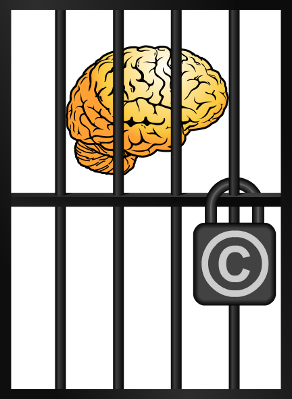
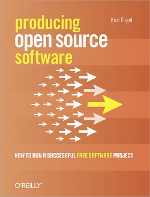
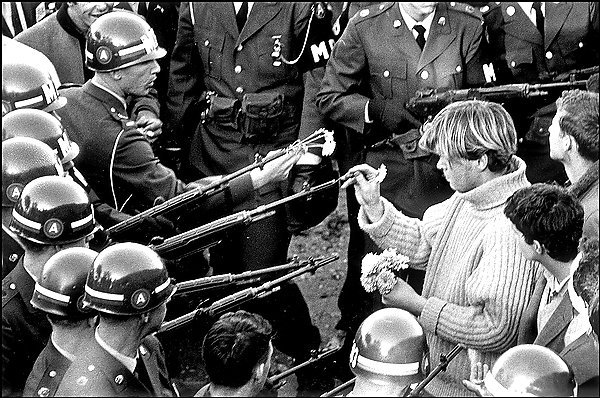
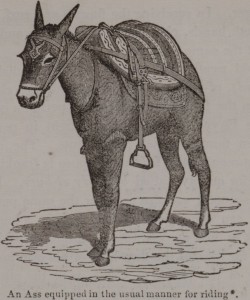
 Yesterday, we lost one of the smartest, most politically aware, and most dedicated advocates for freedom we have had so far in the Internet age; we also lost a truly engaged, honest, and fundamentally good-hearted young person, who was unfairly hounded by U.S. federal prosecutors for a non-crime (in fact, an act intended as a service) that they have misrepresented throughout their prosecution.
Yesterday, we lost one of the smartest, most politically aware, and most dedicated advocates for freedom we have had so far in the Internet age; we also lost a truly engaged, honest, and fundamentally good-hearted young person, who was unfairly hounded by U.S. federal prosecutors for a non-crime (in fact, an act intended as a service) that they have misrepresented throughout their prosecution.
